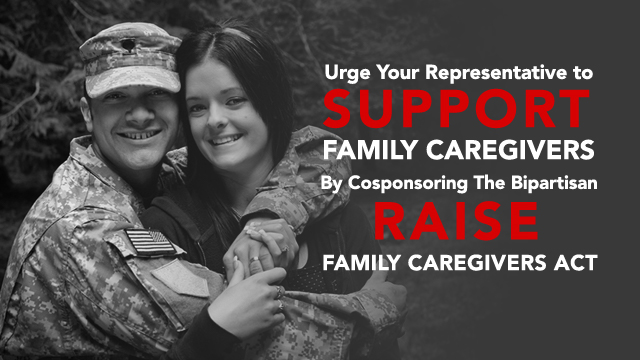AARP Hearing Center
Things adds up. Lost wages from taking time off. Travel costs related to going back and forth to a physician. Taking training to provide correct medical care. The medications and consultations.
We’re talking about family caregivers, the legions of people out there who are caring for a loved one. It may be the child taking care of the parent who once took care of them, the spouse taking care of a husband or wife who has suffered a crippling illness.
Caring for a loved one is the right thing to do, and a task with rewards that cannot be measured. But it’s a task with costs that can be measured.
An AARP Research study conducted last year showed family caregivers – 40 million Americans - spent an average of $7,000, about one-fifth of their income, on caring for loved ones.
These facts are among the reasons it’s heartening to see that as Congress turn its attention to tax reform, it is also turning its attention to those caregivers.
Tax Credits for Caregiving
The Credit for Caring Act, bipartisan legislation supported by the likes of Sens. Joni Ernst (R-Iowa) and Tammy Baldwin (D-Wis.) and Reps. Dan Donovan (R-N.Y.) and Michelle Lujan Grisham (D-N.M.), would create a tax credit of up to $3,000 for eligible working family caregivers who spend at least $2,000 on care-related expenses.
Among items addressed in the bill are expenditures for respite care, expenditures for counseling, support groups or training, lost wages for unpaid time off “due to caring for a qualified care recipient,’’ travel costs and expenditures for technologies that assist a caregiver in providing care.
The proposed legislation has commonsense language to ensure it applies only to legitimate caregivers, who must meet stringent criteria to qualify. The bill also includes well-thought out provisions that would coordinate the measure with other existing tax provisions to prevent double-dipping and phase out benefits at higher income levels.
Caregivers number in the millions, but each has their own story. Elaine Carter of Sylva has been caring for her 79-year-old mother, Stella Buchanan, since open heart surgery five years ago. Stella is also suffering from kidney failure resulting from diabetes.
Asked about the frequency of caregiving, Carter said “Every day. Depending on doctor’s appointments, etc., it’s anywhere from 4 to 8 hours a day.’’
Like many caregivers, Carter says “there’s no reimbursement of any kind’’ for travel, making the bathtub handicapped accessible or paying the deductible for her mother’s medications.
The only assistance the family is receiving has been from Meals on Wheels, which Carter says “has been a life-saver.’’
The care often takes her away from work. “I’ve had a lot of lost wages. I lose wages every week.
She said she would welcome measures like the Credit for Caring Act.
“If there was just some way, like when you have to travel back and forth, if you could get some kind of assistance for that … someone need care can’t always drive or get a ride. It would help if there were something out there to reimburse caregivers for that, especially if they’re on a fixed income.’’
These individual stories add up. The unpaid care provided by family caregivers carries a dollar value upward of a half-trillion dollars a year.
Coordinated caregiving strategy
The Credit for Caring Act is one component of a larger strategy. The U.S. Senate has unanimously passed the Recognize, Assist, Include, Support and Engage, (RAISE) Family Caregivers Act (S. 1028). The thrust of the measure is to develop a coordinated strategy to support family caregivers that would engage the private and public sectors to develop an advisory council formed under the bill. The council would include veterans, family caregivers, social service and health providers and employers, among others. It would help identify actions already being taken or that ought to be taken to recognize and support family caregivers.
The unanimous, bipartisan support for RAISE in the Senate sends a strong message to the House, where the legislation is pending in the House Education and the Workforce Committee chaired by Rep. Virginia Foxx, R-NC.
Let the U.S. House know that you're counting on them to be champions for family caregivers. Tell your Representatives to co-sponsor the RAISE Family Caregivers Act today! action.aarp.org/FamilyCaregiversAct
Moving forward with this legislation is the right thing to do for these unsung heroes, who are not only bearing a financial burden, but often seeing their own health suffer. Chronic conditions like depression and heart disease are often experience by caregivers.
“I’m stressed to the max,’’ says Carter. “My husband must think we’re divorced,’’ she said with a laugh. “He never sees me. He’s been good through all this though, bless his heart.’’
This legislation goes a long way to recognizing the fact that family caregivers aren’t just doing the right thing. They’re an indispensable element in America’s health care system. It’s time they be treated as such.
Longtime mountain journalist Jim Buchanan is with the and provides news commentary for AARP North Carolina.
































































